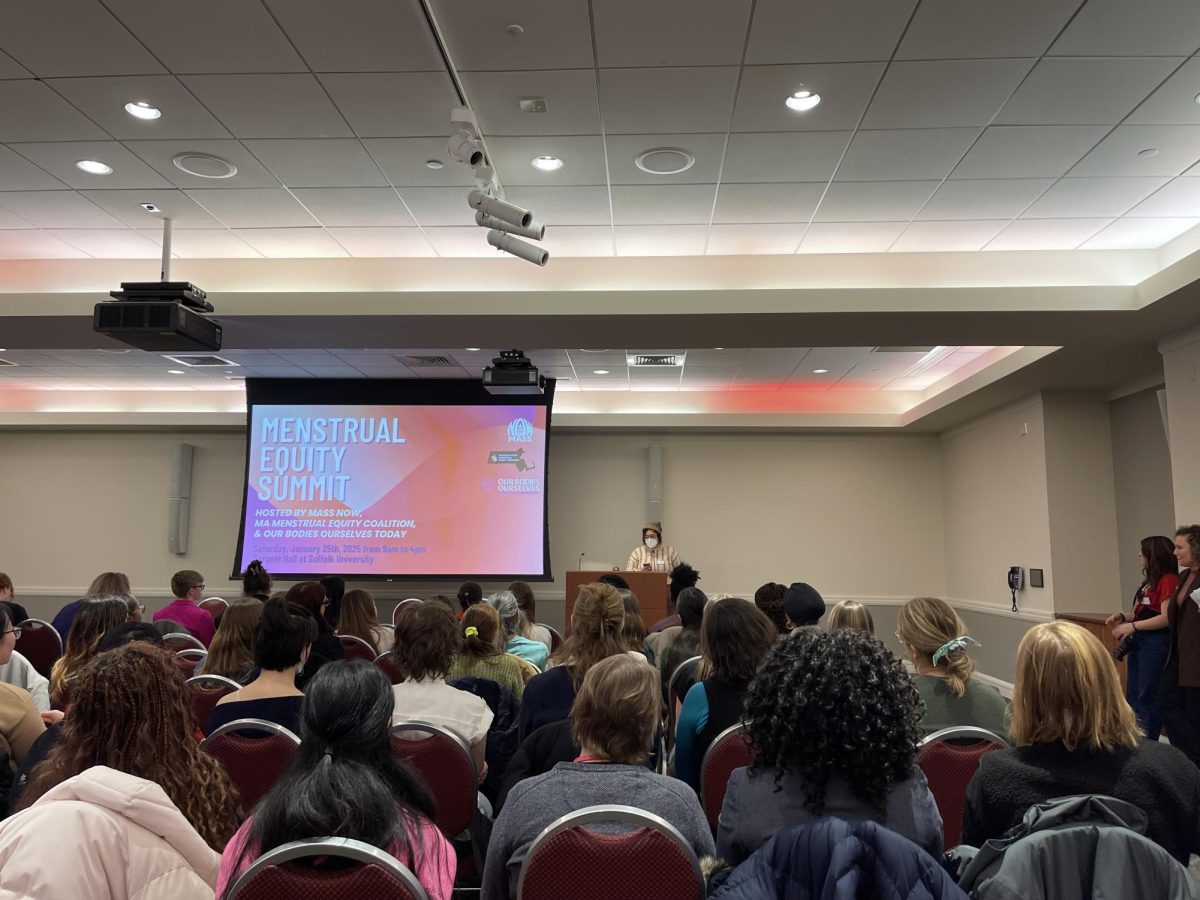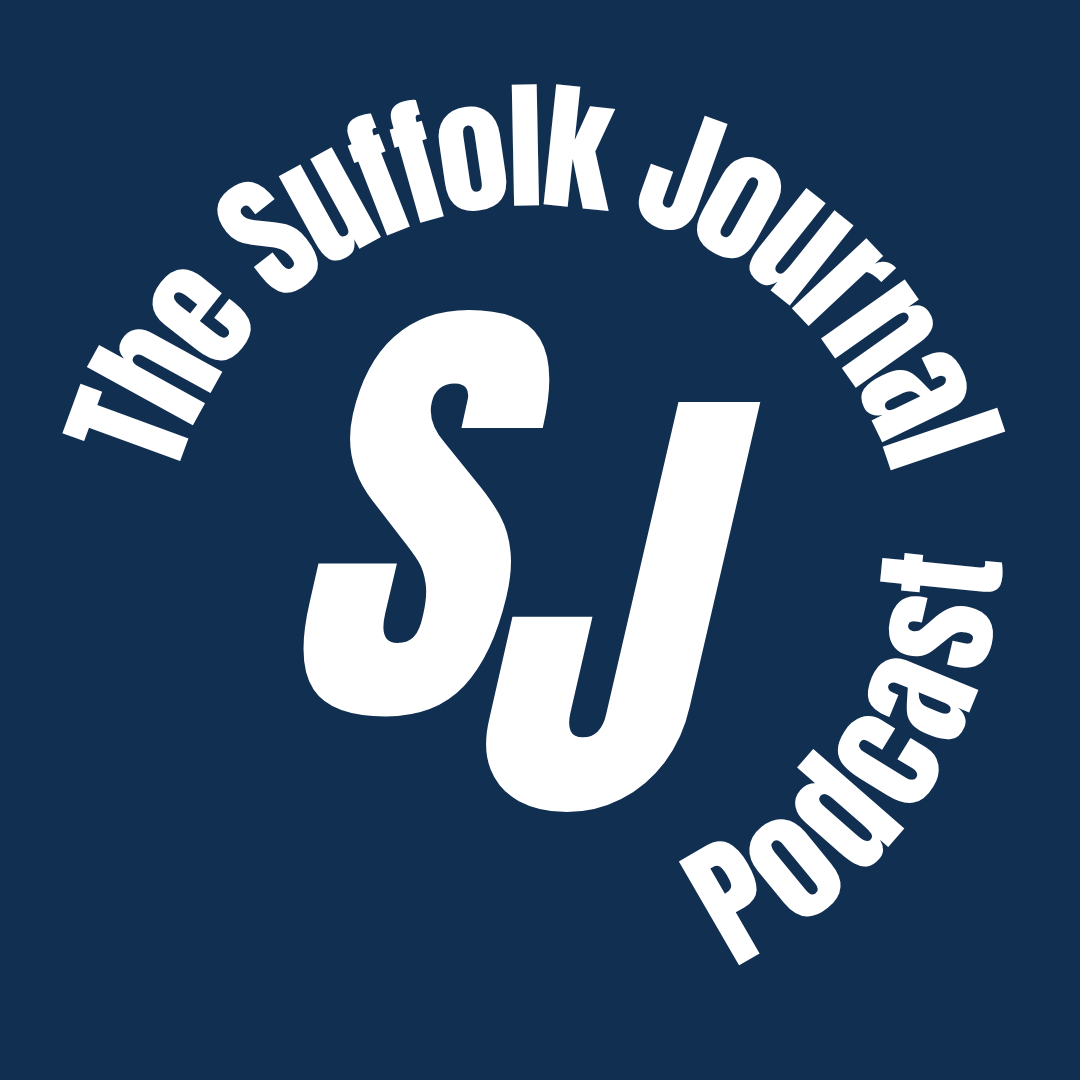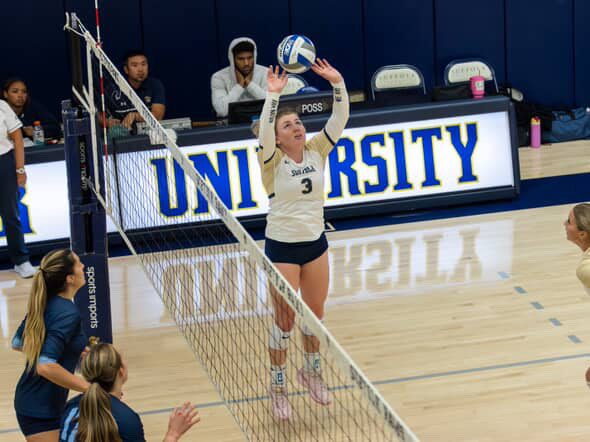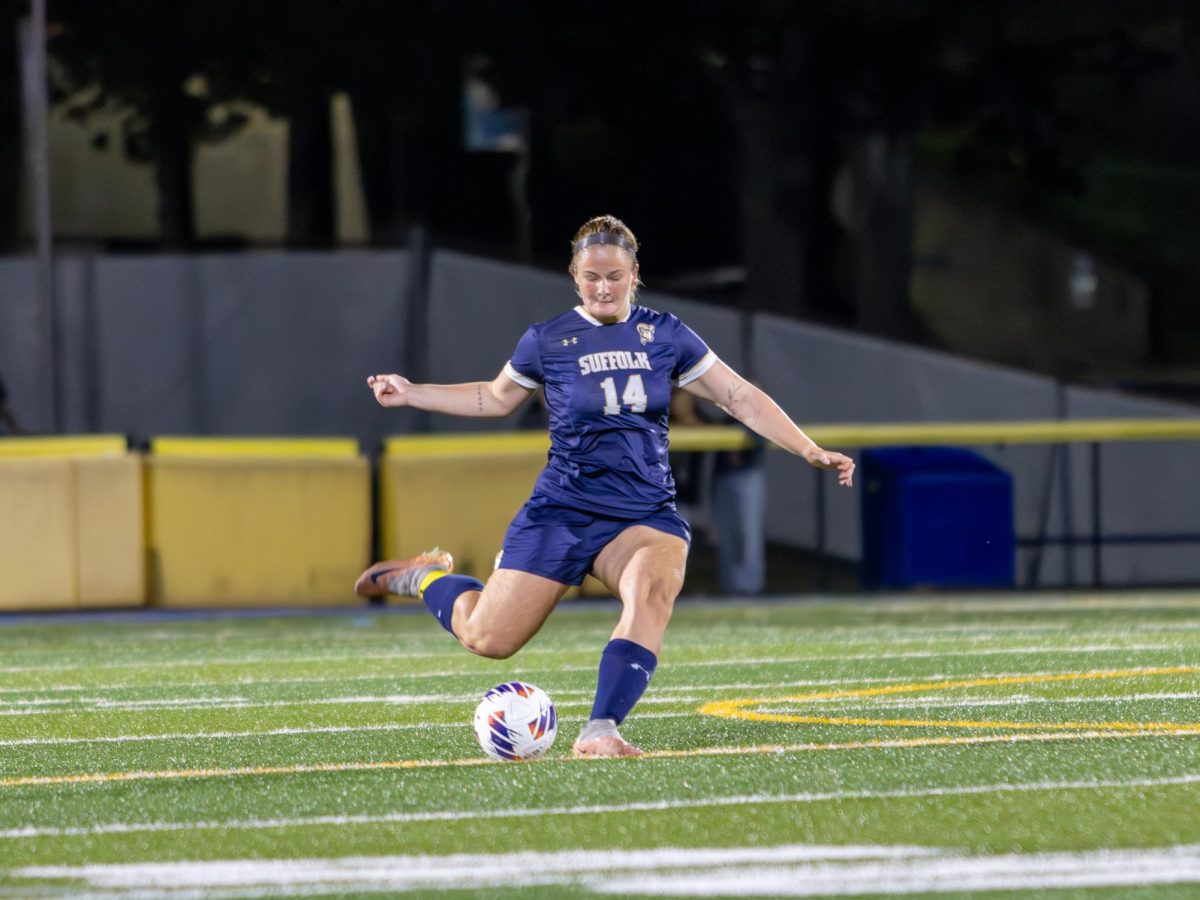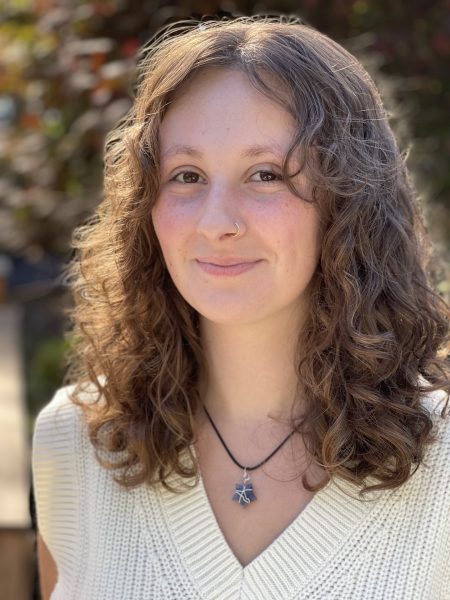The second annual Menstrual Equity Summit brought together people from across Massachusetts to learn about period poverty and menstrual health from various organizations and experts in the New England area.
On Jan. 25, Suffolk University’s Sargent Hall opened its doors to Mass Now, MA Menstrual Equity Coalition and Our Bodies Ourselves Today’s event. It showcased 11 different organizations, a poetry reading, a keynote speaker, a panel discussion and two workshops. The summit was an educational, community-building event aimed at bringing people together to help face inequities in reproductive health care.
The climate that was created at the summit around periods shifted from the everyday whispered tones to proud conversations around period stories and scientifically accurate language. The goal of the summit was to bring together people who bleed and expand the education on menstruation that is often overlooked.
Jem Manolios, the community organizer for Mass Now, said that the summit created an “unashamed discussion about bodies and their functions,” something that is not usually normalized.
Manolios said that as a nonbinary person, the lack of gender terms in the discussions was refreshing.
“The use of medical terms is important because it’s not just ‘womanhood,’ it’s science,” Manolios said.
To start the summit, Zenaida Peterson, a Boston-based poet, performed a few of their poems highlighting the empowerment of the body, periods and bleeding.
Dr. Noelle Elizabeth Spencer gave the keynote address on the “Current State and Emerging Priorities of the Menstrual Equity Movement.” In her address, Spencer talked about her personal and professional findings within reproductive health care and broke down how the intersectionality of privilege, access and equity leads to the current state of menstrual inequality.
Briar Emeny, a senior public relations major at Suffolk, said, “Organizing and creating knowledge is so important and spreading accurate information is essential.”
A panel discussion featured five professionals within the sphere of menstrual health and advocacy: Dr. Yvonne Gomez-Carrion, the medical director of the Gynecology Gender Clinic at Hartford Hospital, Arion Long, the Chief Estrogen Officer of Femly, Mary Ellen Duggan, the nurse leader/district wellness coordinator at Public Schools of Northborough and Southborough, Dr. Shruthi Mahalingaiah, an assistant professor of environmental reproductive and women’s health at Harvard T.H. Chan School of Public Health and Louisa Corbett, a menstrual equity advocate and high school student in Milton.

The panel highlighted medical, entrepreneurship, advocacy and personal stories. Each panelist specialized in different areas and gave the audience a diverse array of perspectives, information and ideas when it comes to addressing menstrual inequality.
“From the womb to tomb, listen to your body,” Gomez-Carrion said during the discussion. She highlighted the ways people who menstruate are treated in the medical field and how things are changing.
Lindsey Salek, a junior political science major at Suffolk said, “It’s really validating when talking about how women are treated in medical settings.”
Many of the people who attended the event found that the summit created an essential community to come together and connect and learn.
Kate Mittlehouser, a junior at Northeastern University, said that with the current federal government, people will need to rely on their local communities. She said the summit gave people a local community.
“This was a great place to come together in solidarity,” Mittlehouser said.
Laurie Shorrosh, interim chief of staff at the Boston City Council, said that the Menstrual Equity Summit means everything to her.
“This created a safe space in today’s political climate,” Shorrosh said.
Throughout the summit, there were tables set up with a variety of different organizations aimed to address key issues in reproductive care, menstrual inequality, comprehensive sex education and more.
Organizations like Fihiri work to collect and distribute all-natural, safe period products to places under crisis. Recent donations went to Gaza, Los Angeles, Sudan, Lebanon and North Carolina. The organization knows that periods do not stop when there is a crisis, but access to necessary products can become very challenging during these times.
Other organizations like Pleasure Pie focus on the education and activism aspect of sex education and reproductive health care. Pleasure Pie is a social justice organization that creates sex-positive, inclusive zines as well as hosting workshops.
Additionally, there were companies that showcased products that help create accessible period products. Like Egal with pads on a roll, which is a new way of distributing free pads in public restrooms. Or Sunny, a company that created a period cup that comes with an applicator designed to insert the cup like a tampon. This creates a reusable and easier alternative to other period products.
There were many other organizations that were tabling at the event, giving participants a chance to network, learn and expand their knowledge on the companies and organizations making a difference in period poverty.
Natalie Hosh, a junior political science major at Suffolk, said the summit was inspiring.
“It’s amazing to be in a room full of inspiring women who have been through so much, I learned a lot and am so inspired,” Hosh said.
The Menstrual Equity Summit highlighted the importance of menstrual education and brought awareness to period poverty. It emphasized the unjust realities that people who menstruate face. While there are organizations, people and companies working to make a difference, there is still work to be done.
“Every person who walks into a bathroom should have what they need,” Duggan said during the panel discussion. “It’s not a luxury, it’s a basic human need.”


